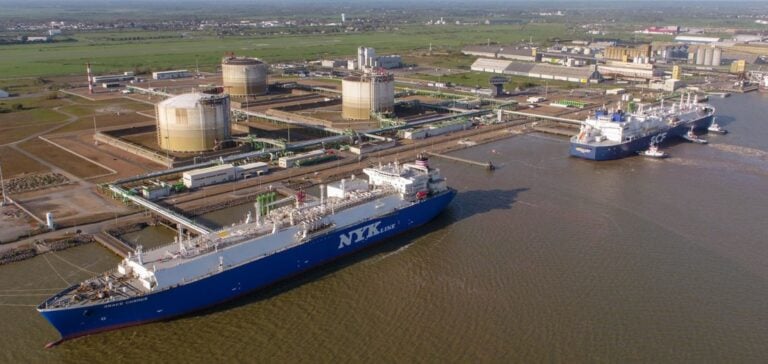According to Cecile Wake, President of Shell Australia, the combination of meeting energy needs and decarbonization objectives is driving countries like the Philippines, Thailand, Vietnam and Bangladesh towards LNG. This latent demand is a crucial factor for the LNG market, despite varying price elasticities between the region’s markets. In 2022, price-sensitive countries such as India and Bangladesh reduced their purchases due to high prices and volatile markets resulting from the war in Ukraine.
The Challenges of Price Elasticity
Platts JKM, the reference price for LNG cargoes delivered to Northeast Asia, averaged around $33.98/MMBtu in 2022, compared with $18.60/MMBtu in 2021. In May 2023, this price was $11.49/MMBtu. Despite this volatility, many buyers opt for a mix of long-term contracts and spot transactions to manage supply risks.
Shell Initiatives in Asia and Australia
Shell is strategically positioned to serve Asian markets with a flexible trading model, allowing a combination of long-term cargoes and flexible portfolios. In 2023, Shell delivered the first commissioning cargo to Vietnam’s LNG import terminal and provided the first LNG delivery to the Batangas terminal in the Philippines.
Confidence in the Prelude FLNG Project
Shell’s projects in Australia, including Prelude, Crux and QGC, are essential to maintaining their supply position. Wake points out that the last 18 months have seen an increase in the reliability and use of Prelude Floating LNG. Despite past challenges, such as the 2021 fire, Prelude production is on the rise.
Navigating through regulations
Western Australia’s domestic gas policy requires 15% of exports to be available to local consumers. Wake argues that access to export and domestic markets is key to increasing gas extraction. It also expresses disappointment at the delay in legislative reforms crucial to offshore regulation, stressing the importance of a proper regulatory framework for the benefit of gas producers and the community.
Background to the Shell Annual General Meeting
Shell’s Annual General Meeting in London was marked by protests and votes against the company’s current climate strategy. 21.8% of shareholders voted against Shell’s updated energy transition strategy, demanding a shareholder consultation. Investors are calling for targets more in line with the Paris Agreement, with 18.6% of votes supporting a resolution for stronger climate commitments. Shell remains determined to achieve carbon neutrality by 2050, despite the challenges and criticism.






















